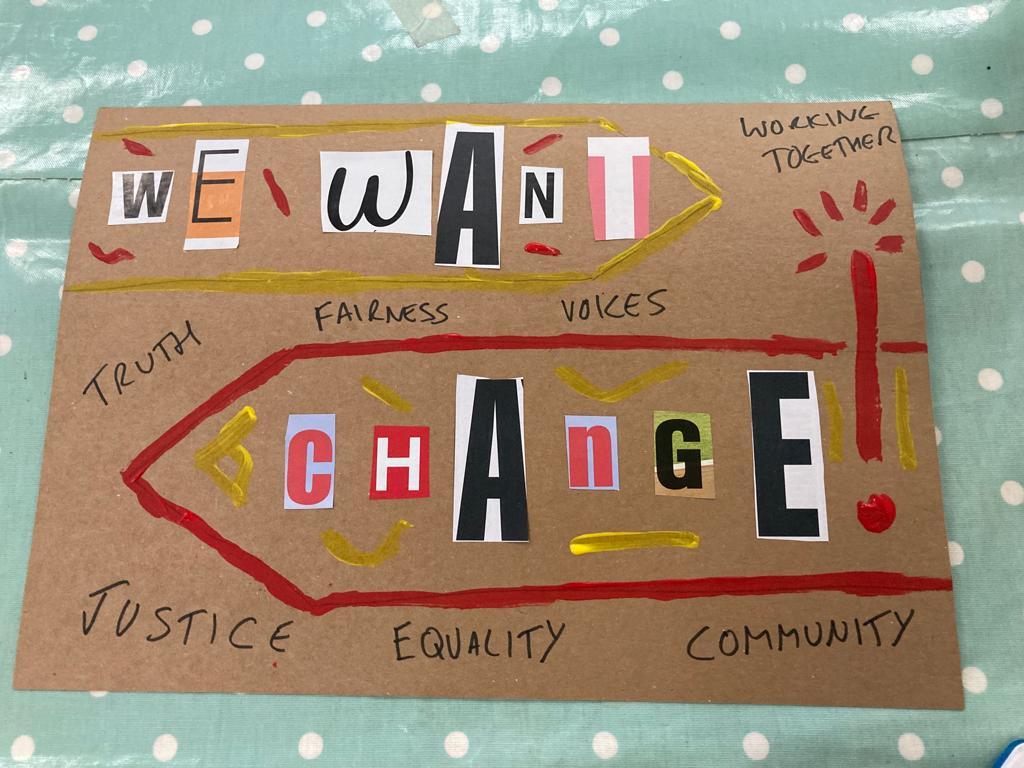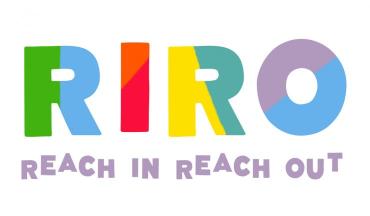‘Reach In and Reach Out’ (RIRO) was a co-produced programme for young people that supported their creativity and wellbeing and offered pathways to community engagement and cultural sector volunteering in the West of England.
This webpage describes the project and provides links, below, to a toolkit and resources that can support your cultural co-creation work with young people.
You can read slides about RIRO from an October 2024 presentation with GEM (Group for Education in Museums) here.
‘Reach In Reach Out’ (RIRO) was a creative volunteering and wellbeing project that brought together young people, artists, creative producers, and researchers across four sites and seven organisations in the West of England from 2022-2024. The project targeted young people, 16-25, living with physical or psychosocial challenges, those at risk of social isolation, and those transitioning to further education or employment. Through RIRO, the young people made extraordinary personal gains in creative skills, wellbeing, and event management, and the project partner institutions strengthened their ability to co-create with and support young people.
RIRO was coordinated by Arts & Health South West with our partners in:
Bath & North East Somerset: Holburne Museum and Creativity Works
Bristol: creativeShift and John Wesley’s New Room
Weston-super-Mare: Super Culture
The project was supported by the Department of Culture, Media and Sport’s Volunteering Futures Fund, administered by Arts Council England, and by the National Lottery Heritage Fund.
RIRO Toolkit and Resources
The RIRO toolkit shares the voices, stories, and lessons learned from this work. Specific guidance on getting started, co-creation, organisational change, co-production, and reflection and learning can inform your own creative wellbeing work with young people. We also explore the key elements of the project – creativity, wellbeing, and volunteering.
- RIRO Lessons Learned Toolkit (designed PDF)
- RIRO Toolkit (plain text version)
- RIRO Access Case study (p. 8)
RIRO project staff are sharing knowledge and skills from the project and the toolkit through workshops, conference presentations and consultations. Events in 2024 include:
Practice as Research seminar
- International Creative Research Methods Conference in-person workshop
- GEM (Group for Education in Museum) online workshop (see slides here)
- Creative Health in Action (Bristol) exhibition
- Bucks Culture Creative Collaboration Conference in-person workshop
Workshop feedback:
“Very interesting project with some great outcomes. It is very useful to hear about what is going on in the area and explore how I might apply it.”
“Certainly learned more about different forms of evaluation and how to creatively evaluate. Lots of ideas for engaging young people initially including finding them, accommodating them, putting them at ease. Lots of activity ideas shared.”
“I'll be sharing the toolkit with the partners and organisations that I work with, especially through the Cultural Education Partnership.”
For more information about RIRO training workshops and bespoke project consultation, contact [email protected]
The RIRO project approach:
Co-creation with young people
Each project partner developed its own co-creation approach to involving young people in design and delivery. These include developing creative workshops to explore views about creativity, wellbeing, and volunteering; hosting creative launch events and inviting young participants to co-develop and run future events; and building relationships with young refugees and young people in supported living to attend creative activities and volunteer at local cultural events. Partner organisations made participation accessible through face-to-face and digital options, transportation support, and adapted meeting spaces and materials.
Co-production with RIRO partners
The RIRO project was developed and managed in a co-produced way with AHSW staff, partner site staff, and young people. The group engaged in a collaborative reflection, learning, and refinement process to strengthen each other’s efforts and contribute to overall learning to be shared externally. We met bi-monthly to discuss progress and challenges and adapted our approach as needed. Partners shared their creative delivery and evaluation methods with each other. As a group, we participated in seasonal creative activities hosted by different partners.
Participatory evaluation
Our co-production approach also anchored our participatory evaluation process. This included developing a common aim across sites, guided by a logic model with evaluation targets; quantitative and qualitative data collection, and creative evaluation activities including art journals, participant journey booklets, and young person-led activities. We also trained two young people as community researchers to help with data collection and trained project staff and other young people volunteers in community research methods, including analysing data for the toolkit and the final evaluation report.
For more details, including lessons learned and templates, see the Toolkit resources above.



